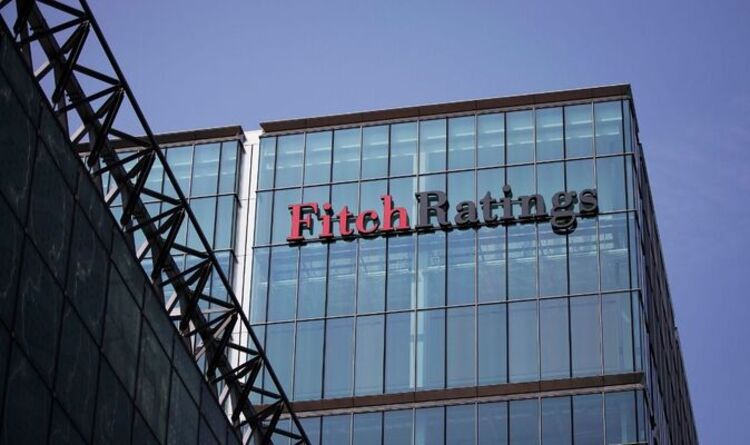Russia’s sovereign rating plummets to ‘junk’ grade by Fitch – Defaults ‘imminent’
PM outlines plan to phase out Russian oil and gas
We use your sign-up to provide content in ways you’ve consented to and to improve our understanding of you. This may include adverts from us and 3rd parties based on our understanding. You can unsubscribe at any time. More info
Fitch Ratings, one of the big three credit rating agencies alongside Moody’s and Standard & Poor’s, downgraded Russia’s sovereign rating after an advanced assessment of Russia’s creditworthiness. Fitch’s ‘C’ rating is one step above default which is in line with the Moody’s score of ‘Ca’ which was announced on Sunday.
Standard & Poor’s gives a BBB- sovereign rating or higher to those countries of investment grade and grades of BB+ or lower which are deemed ‘junk’ or speculative grades.
A sovereign credit rating is given after an assessment of a country’s creditworthiness to signify to investors the risk involved in investing in the debt of a country.
The creditworthiness assessment and conclusion is how a lender determines you will default on your debt obligations and how worthy you are of credit.
Russia’s economy has been decimated after President Putin’s invasion of Ukraine sparked global outrage leading to economic sanctions.

George Catrambone, DWS Group’s head of Americas trading told Axios: “The default risk is real”.
The crash of the Russian ruble to record-breaking lows and the subsequent impact on Russia’s financial markets have raised concerns over Russia’s inclination and ability to repay service debt.
Fitch stated: “This rating action follows our downgrade of the Long-Term Foreign-Currency IDR to ‘B’/Rating Watch Negative on 2 March, and developments since then have, in our view, further undermined Russia’s willingness to service Government debt.
“This includes the Presidential Decree of 5 March, which could potentially force a redenomination of foreign-currency sovereign debt payments into local currency for creditors in specified countries.


The statement added: “Further ratcheting up of sanctions and proposals that could limit trade in energy increase probability of a policy response by Russia that includes at least selective non-payment of its sovereign debt obligations.”
Russia is due to pay $107million by March 16 in coupons across two bonds, though it has a 30-day grace period on the payments.
Speaking to the Financial Times, head of emerging market debt at William Blair, Marcelo Assalin said: “We have a high conviction that [Russia] will not pay.
DON’T MISS:
Putin sparks panic with export ban impacting electronics (REACTION)
What to do in a nuclear attack – four key steps to take to stay safe (INSIGHT)
Brexit: British expats charged huge sums to send goods to Spain (REVEAL)

“But the market is totally dysfunctional. The problem we face is CDS [credit default swaps] is implying a recovery value that’s not realistic”.
Financial experts and investors are concerned that the sanctions on Russia will obstruct the settlement system for CDS contracts to the extent where investors will be out of pocket after using them as protection for their losses on defaulted bonds.
Some traders have expressed their gravest concerns that the CDS swaps may not pay out at all.
Source: Read Full Article

